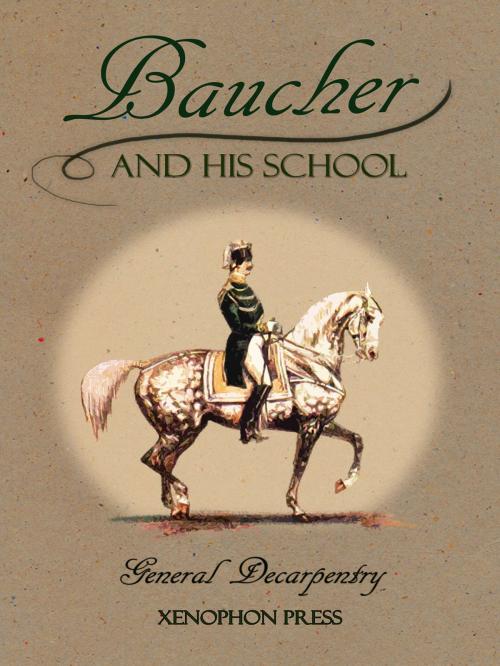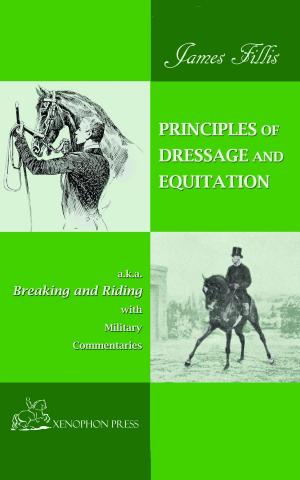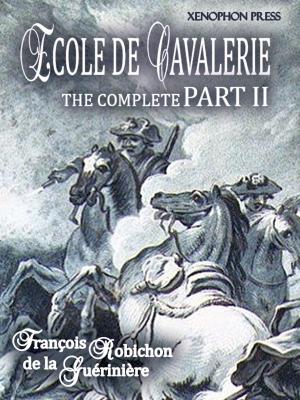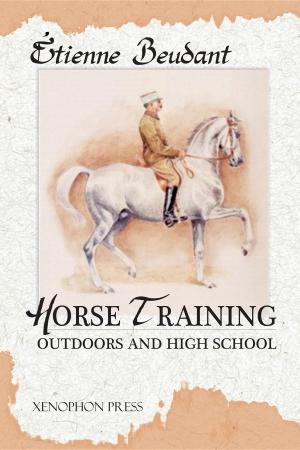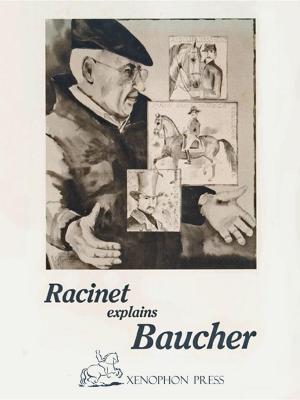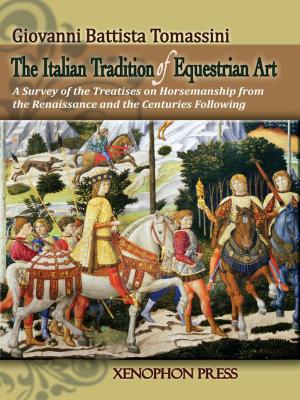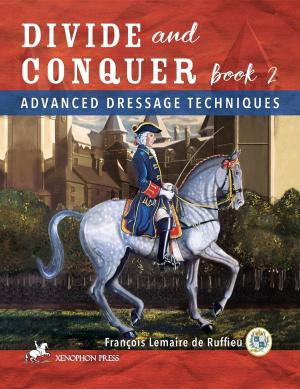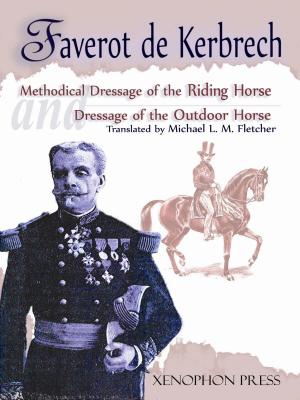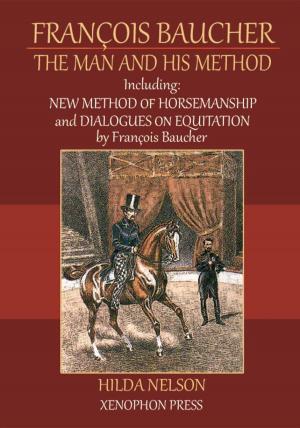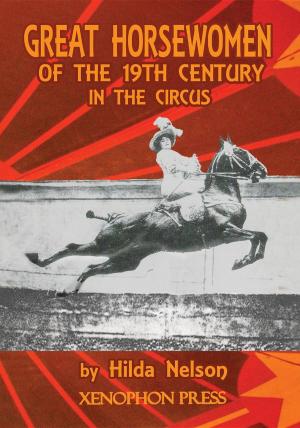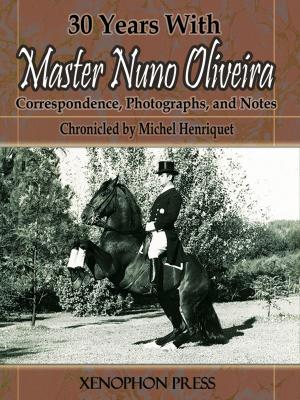Baucher and His School
With Appendix I: Recollections From LOUIS RUL and EUGÈNE CARON With Appendix II: Commentary by LOUIS SEEGER From his pamphlet: MR. BAUCHER AND HIS ART: A SERIOUS WORD WITH THE RIDERS OF GERMANY
Nonfiction, Sports, Horse Sports, Equestrian| Author: | Michael L. M. Fletcher, Albert-Eugène Edouard Decarpentry | ISBN: | 9780933316324 |
| Publisher: | Xenophon Press LLC | Publication: | September 1, 2011 |
| Imprint: | Xenophon Press LLC | Language: | English |
| Author: | Michael L. M. Fletcher, Albert-Eugène Edouard Decarpentry |
| ISBN: | 9780933316324 |
| Publisher: | Xenophon Press LLC |
| Publication: | September 1, 2011 |
| Imprint: | Xenophon Press LLC |
| Language: | English |
Baucher and his School (1948) is an original biography of the “greatest écuyer of all time,” François Baucher. Decarpentry comments on the discoveries of one of the most prolific innovators in Equestrian Art. This book comprises the equestrian biography of Baucher, an analytical examination of his method, and its lasting effect on French equitation. Decarpentry’s treatise is essential for understanding the importance of Baucher, a phenomenal figure in the history of equitation. Appendix I includes excerpts from the memoir of Louis Rul, clarified and completed by his friend Eugène Caron. Their accounts provide valuable first hand anecdotes of the life and times of Baucher. Appendix II consists of excerpts from ‘Baucher and his Art: Serious Warning to the Riders of Germany’ by Louis Seeger, Baucher’s German rival. Seeger studied Baucher’s method with malevolent blindness, but also with indisputable competence. With rigorous examination, Seeger compares and contrasts his own method to Baucher’s ‘nouvelle méthode.’ This counter-argument sheds light on the ‘German’ versus ‘French’ method that has endured even today. One of Baucher’s lasting effects on equitation is the ideas of ‘riding in lightness’. Baucher constantly questioned his and the established methods, experimented and innovated through lifelong trial and error in search of truth. “The appearance of Baucherism started a new era in dressage.” prolific innovators in Equestrian Art. This book comprises the equestrian biography of Baucher, an analytical examination of his method, and its lasting effect on French equitation. Decarpentry’s treatise is essential for understanding the importance of Baucher, a phenomenal figure in the history of equitation.
Baucher and his School (1948) is an original biography of the “greatest écuyer of all time,” François Baucher. Decarpentry comments on the discoveries of one of the most prolific innovators in Equestrian Art. This book comprises the equestrian biography of Baucher, an analytical examination of his method, and its lasting effect on French equitation. Decarpentry’s treatise is essential for understanding the importance of Baucher, a phenomenal figure in the history of equitation. Appendix I includes excerpts from the memoir of Louis Rul, clarified and completed by his friend Eugène Caron. Their accounts provide valuable first hand anecdotes of the life and times of Baucher. Appendix II consists of excerpts from ‘Baucher and his Art: Serious Warning to the Riders of Germany’ by Louis Seeger, Baucher’s German rival. Seeger studied Baucher’s method with malevolent blindness, but also with indisputable competence. With rigorous examination, Seeger compares and contrasts his own method to Baucher’s ‘nouvelle méthode.’ This counter-argument sheds light on the ‘German’ versus ‘French’ method that has endured even today. One of Baucher’s lasting effects on equitation is the ideas of ‘riding in lightness’. Baucher constantly questioned his and the established methods, experimented and innovated through lifelong trial and error in search of truth. “The appearance of Baucherism started a new era in dressage.” prolific innovators in Equestrian Art. This book comprises the equestrian biography of Baucher, an analytical examination of his method, and its lasting effect on French equitation. Decarpentry’s treatise is essential for understanding the importance of Baucher, a phenomenal figure in the history of equitation.
